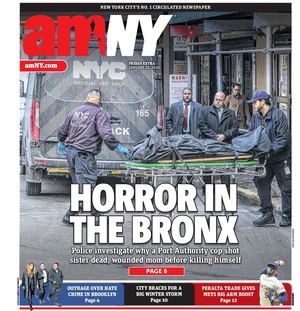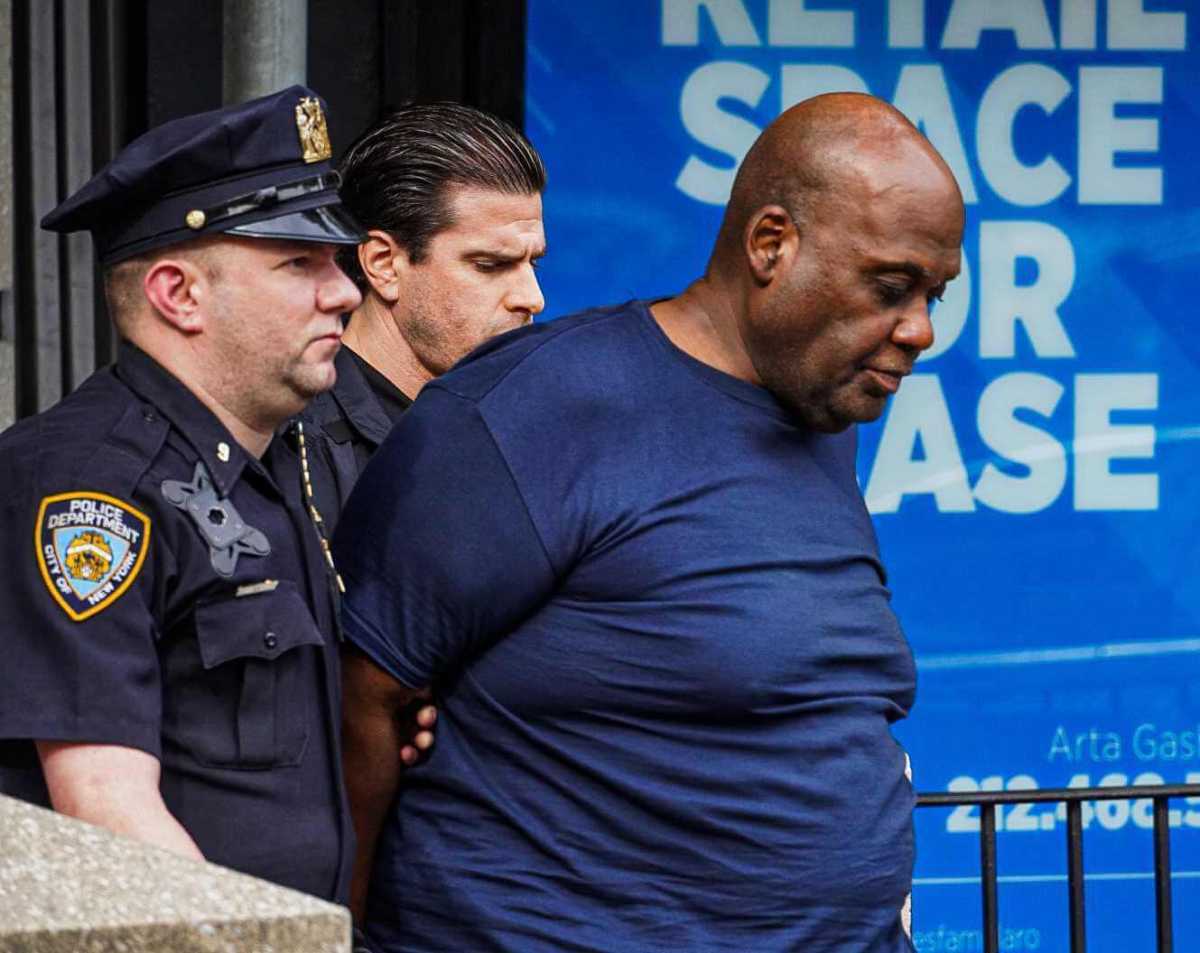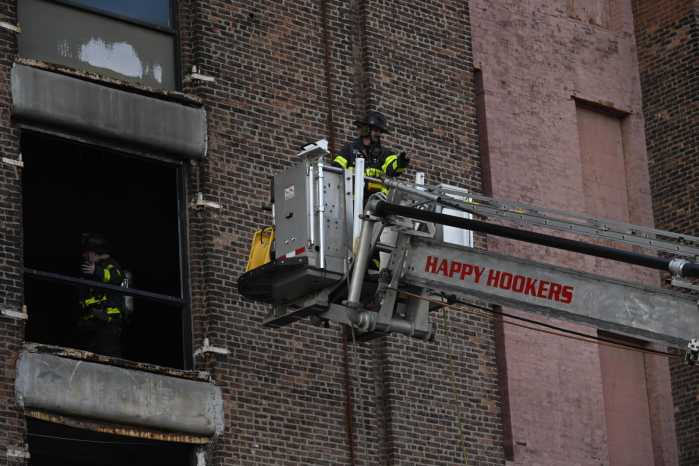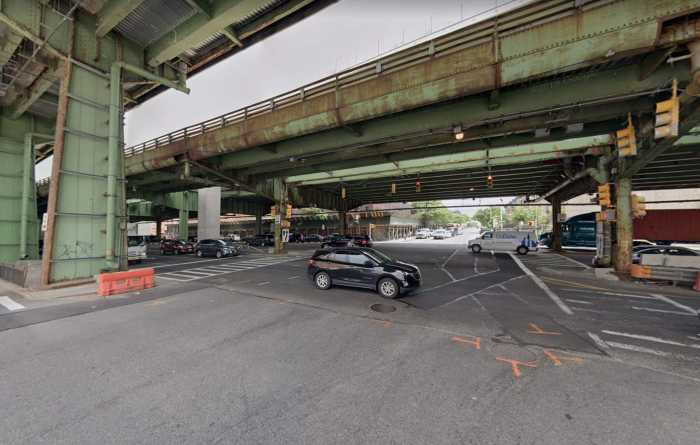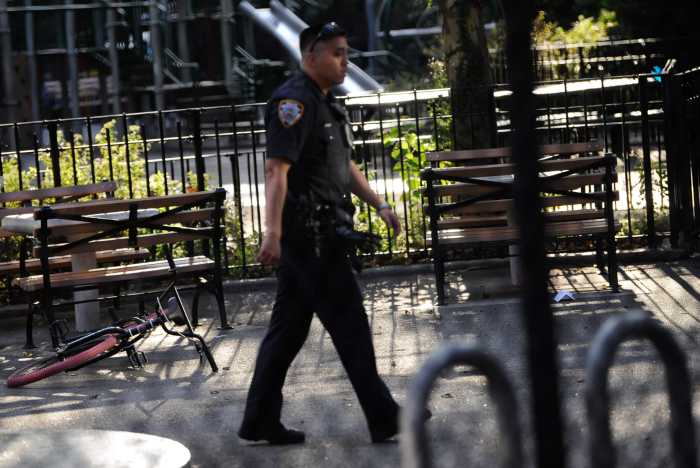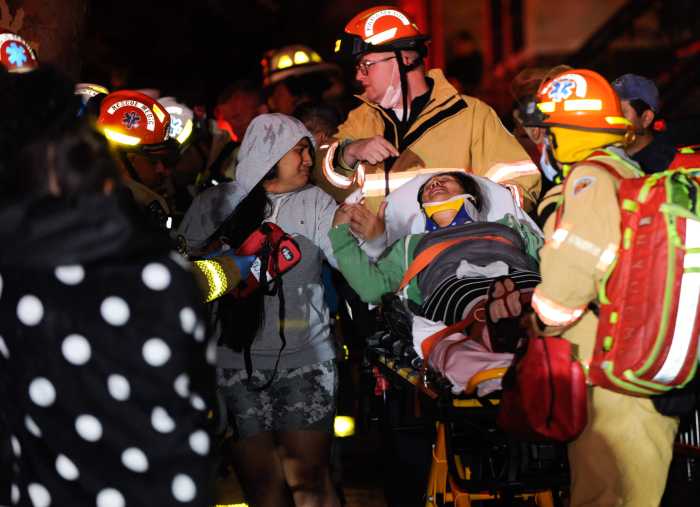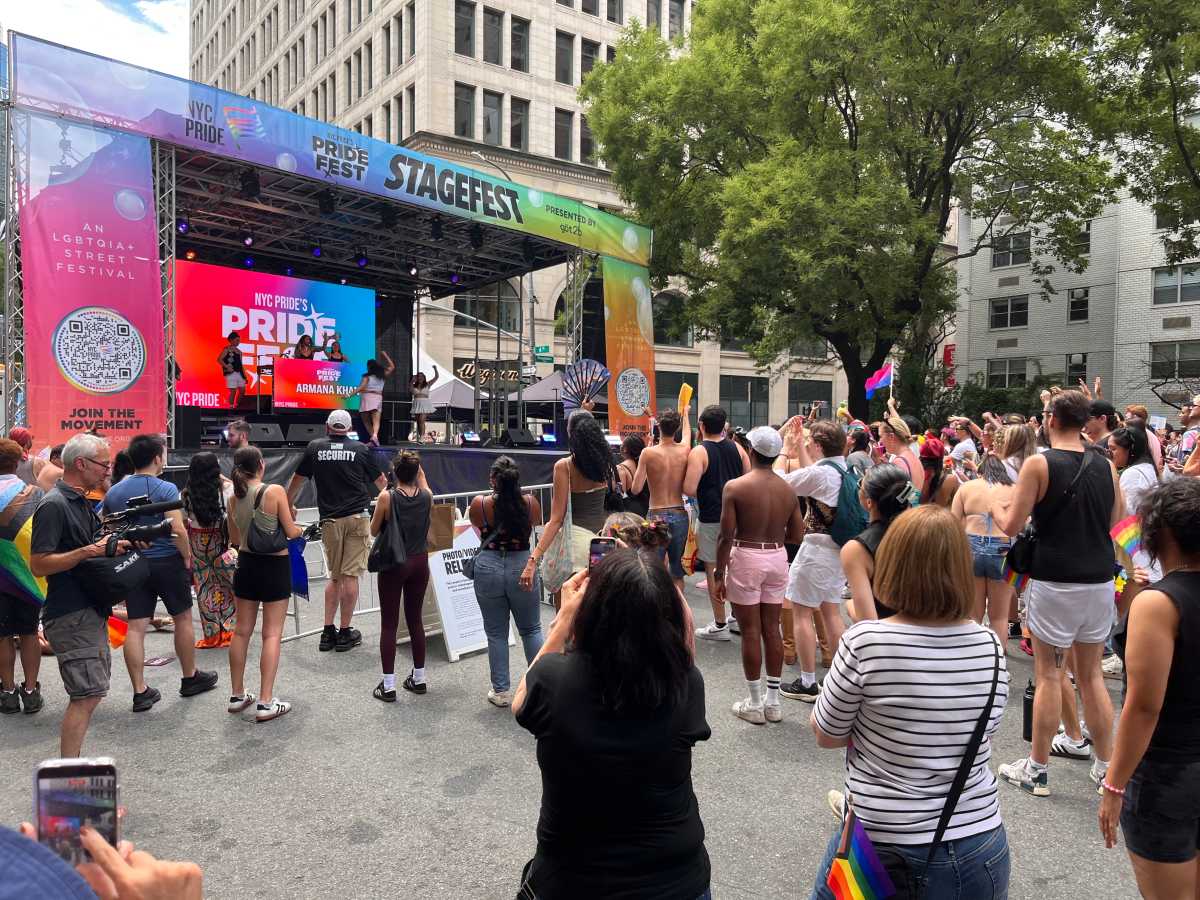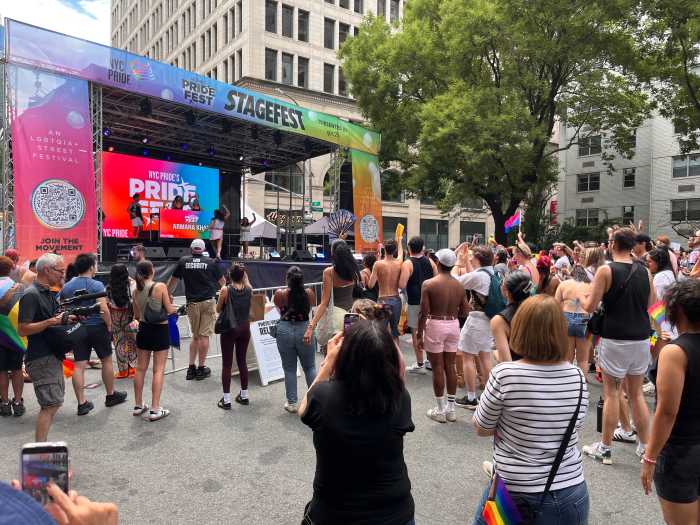Frank James pleaded guilty Tuesday to federal terrorism and weapons charges, taking responsibility for the April 12 mass shooting on a crowded N train in Brooklyn that left 29 straphangers injured, including 10 with gunshot wounds.
But in entering the guilty plea to terrorism counts and one weapons charge, and confessing to his crimes, James, 63, told the court that his intention that day was solely to “seriously injure” subway passengers, not kill them.
“My intention was to cause serious bodily injury to the people on the train,” James claimed to presiding Judge William F. Kuntz at Brooklyn federal court. “And although it was not my intention to cause death, I was fully aware that a death or deaths could occur as a result of my discharging a firearm in such an enclosed space as a subway car.”
If that’s the case, James was successful: although dozens were injured in the rampage, no one died, partially because of heroic on-the-spot thinking by MTA employees.
On the other hand, prosecutors representing the federal government cried foul at James’ assertion that he didn’t really want to kill anyone.
Lead prosecutor Sarah Winik revealed for the first time that James had been planning the attack since as early as 2017, when he purchased items like a construction worker uniform that he would eventually use in the grisly attack.
Winik also said that in preceding months, James traveled to New York for a “trial run” at the massacre, sussing out how he could force riders to move to one end of the subway car and allow him to kill more efficiently.
James’ trial had been set to commence on Feb. 27, and for months the suspect — who escaped the scene of the crime but was apprehended 30 hours later — had indicated his wish to go to trial.
That changed last month when prosecutors unveiled damning evidence against James, wherein he volunteered to investigators that he was on the train in question at the time of the incident.
James’ defense team sought to block his interview with investigators from evidence, arguing he had not been read his Miranda rights in advance, but Judge Kuntz rejected the motion at around the same time James indicated his preference to take a plea.
Breon Peace, the US Attorney for the Eastern District of New York, said in a statement that James had “brought terror” to New Yorkers and the guilty plea would allow for the start of the healing process for his crimes.
“On the morning of April 12, 2022, Frank James cold-bloodedly shot innocent New Yorkers traveling on the subway in Brooklyn, and brought terror to our great city. James’s crimes of violence have been met with swift justice,” Peace said. “James’s admission of guilt to all eleven counts of the superseding indictment acknowledges the terror and pain he caused. This guilty plea is an important step towards holding James fully accountable and helping the victims of the defendant’s violence and our great city heal.”
The MTA, too, expressed delight that the man who had terrorized its commuters had finally copped to the crime.
“The victims of this reprehensible attack deserved and received justice,” said MTA communications director Tim Minton. “As we recall the transit workers who assisted riders to safety that terrible day and security cameras that helped investigators rapidly catch the suspect, we hope this perpetrator will never again be free to hurt innocent people.”
Despite the plea agreement, the two sides are still at odds over how James should be sentenced. Winik said the sentencing guidelines, a non-binding calculation based on statute, would recommend James be put behind bars for 31-37 years if he accepted responsibility for his crime, and 40 years to life if he did not to the court’s satisfaction. The government intends to throw the book at James and seek penalties beyond the sentencing guidelines, Winik noted.
Mia Eisner-Grynberg, James’ attorney with the Federal Defenders, disputed the calculation and posited it should be based on guidelines for aggravated assault, not attempted murder; that would recommend James be put away for 16.5-18 years.
Sentencing won’t take place until July at the earliest, when the Department of Probation must submit its own sentencing report to Judge Kuntz.
James’ motive for the crime remains unclear, and neither he nor his attorneys pointed to one during proceedings, though in the years leading up to the attack he posted numerous videos featuring rants on topics like Mayor Eric Adams and racial politics, and argued he’s a “victim” of the city’s mental healthcare system.
In a prepared statement, Eisner-Grynberg and fellow attorney Amanda David requested mercy in sentencing for James, given his age, health conditions, and chronic mismanagement of healthcare for federal inmates.
“Mr. James has accepted responsibility for his crimes since he turned himself in to law enforcement,” said the attorneys. “A just sentence in this case will carefully balance the harm he caused with his age, his health, and the Bureau of Prisons’ notoriously inadequate medical care. Unfortunately, as the government just stated, even a sentence that would vastly exceed Mr. James’s natural life is not enough for them. Their requested punishment serves no legitimate sentencing purpose.”
This story has been updated with comment from the MTA
